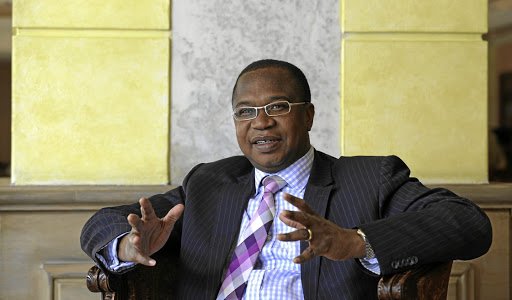|
Getting your Trinity Audio player ready...
|
The Zimbabwe Fight Inequality Alliance – a broad-based Network of social movements, women’s rights groups, faith-based organisations, labour unions, and individuals committed to challenging and reversing the unfair distribution of wealth, power, opportunities, social status, access and control of resources in the country shared with Spiked Online Media its expectations for the 2022 National Budget.
Below is the network’s inputs into the 2022 National Budget:
The COVID-19 pandemic cannot be regarded as solely a public health issue but should also be seen from the lenses of how it has deepened the already existing inequalities in Zimbabwe manifesting in various forms. Given these realities, the 2022 National Budget presents a ray of hope to reduce these inequalities and cater to the needs and aspirations of the poor and vulnerable citizens. Against this background, below are the inputs into the 2022 National Budget from Zimbabwe Fight Inequality Alliance.
1. Social Protection
The COVID-19 pandemic worsened the social vulnerabilities in Zimbabwe. The welfare of citizens should be the number one priority for the 2022 National Budget. The 2022 National Budget must, therefore;
➢ Ring-fence the 2% tax for social protection and allocate at least 4.5% of the National Budget towards social protection.
➢ Allocate resources to cater for the People with Disabilities in Zimbabwe including those in schools. This should include making a provision for their assistive devices.
➢ Allocate funds towards assisting women and youths’ businesses to recover from the COVID-19 shocks.
➢ The budget must also make provisions for safeguarding COVID-19 Relief funds to ensure that the resources reach intended beneficiaries through putting in place deterrent mechanism frameworks against perpetrators.
➢ Set up COVID-19 Recovery Fund to cater to vulnerable groups.
2. Education
Due to the COVID-19 pandemic, citizens’ realities when it comes to access to basic education are not the same. Some students have had no progress in their education since 2019 due to the pandemic. The 2022 National Budget should;
➢ Set aside resources to cater for vulnerable children especially those in rural areas for them to have equal access to online education and bridge the inequality gap.
➢ Support free Early Childhood Development in rural and peri-urban areas.
➢ Provide for a sustainable school feeding programme.
➢ Strengthen the BEAM facility and clear the 4 million children backlog fuelled by COVID-19.
➢ Allocate resources for the construction of vocational training centres and capacitating the already existing ones.
3. Healthcare
The COVID-19 pandemic has brought to the fore the inadequacies of the country’s public healthcare systems and this has since been worsened with the pressures and demands from the pandemic. Citizens’ right to basic healthcare is therefore compromised. The 2022 National Budget must therefore prioritise the following;
➢ The health allocation for the 2022 National Budget must be at least 15% of the total budget in line with the Abuja Declaration.
➢ The welfare of the health workers and practitioners must be prioritised for motivation and guaranteed. This must be done by addressing the salary standoff with health workers.
➢ Primary healthcare centres and COVID-19 centres must be fully equipped and capacitated with medical drugs and equipment.
➢ Ensure that maternal healthcare is adequately funded to address the plight of women.
4. Food Security
Over 2.8 million people in Zimbabwe are in extreme poverty relying on the assistance of the World Food Programme in partnership with various humanitarian organisations such as World Vision, Care International, Goal International and Plan International. To address food insecurity and to reduce poverty levels; the 2022 National Budget must;
➢ Support climate change mitigation and adaptation strategies.
➢ Boost agricultural production through an incremental budgetary allocation of at least 10% of the Gross Domestic Product (GDP) to help revive the sector and redress hunger and poverty levels which are now considered as extreme.
➢ Promote climate-smart agriculture to reverse the effects of climate change on agriculture production.
➢ Provide for the mapping of food needs and planning intervention strategies in time.
5. Water and Sanitation
The state of water provision and sanitation in Zimbabwe is deplorable and this has seen some suburbs going for years without running water. This heavily compromises citizens’ right to safe and portable water as they are forced to resort to alternative sources of water which in the majority of cases are not safe. The 2022 National Budget must, therefore;
➢ Allocate resources towards the refurbishment of water and sanitation infrastructure and installation of new equipment to ease the water woes across the country.
➢ Adhere to the eThekwini Declaration and allocate at least 1.5% of the budget towards water provision.
6. Energy Supply
The power outages witnessed across the country have a huge impact on the poor and vulnerable Zimbabweans more than any other social group as these groups do not have the resources to afford alternative sources of power like gas and solar energy. The plight of these groups when it comes to access to energy can be addressed through the 2022 National Budget through increasing funding towards the energy sector to allow for timely importation of critical repairs like turbines and generators as well as funding new green energy projects to diversify the country’s energy mix.
7. Taxation
Currently, Zimbabwe has a taxation system that weighs heavily on the shoulders of the poor and vulnerable in Zimbabwe. The 2022 National Budget must:
➢ Provide for tax relief measures to reduce the tax burden on the poor and marginalised Zimbabweans whose disposable incomes have been severely affected by the pandemic.
➢ Introduce Wealth Tax to bridge the gap between the rich and the poor by ensuring that those with more are taxed more.
➢ Introduce and provide for LifeStyle Audits for public officials to reduce fleecing of the national purse which tends to shift the burden of resource mobilisation through taxation to citizens.
➢ Reduce the tax burden on citizens through strengthening Domestic Resource Mobilisation, curbing illicit financial flows and pugging out mineral resource leakages.






